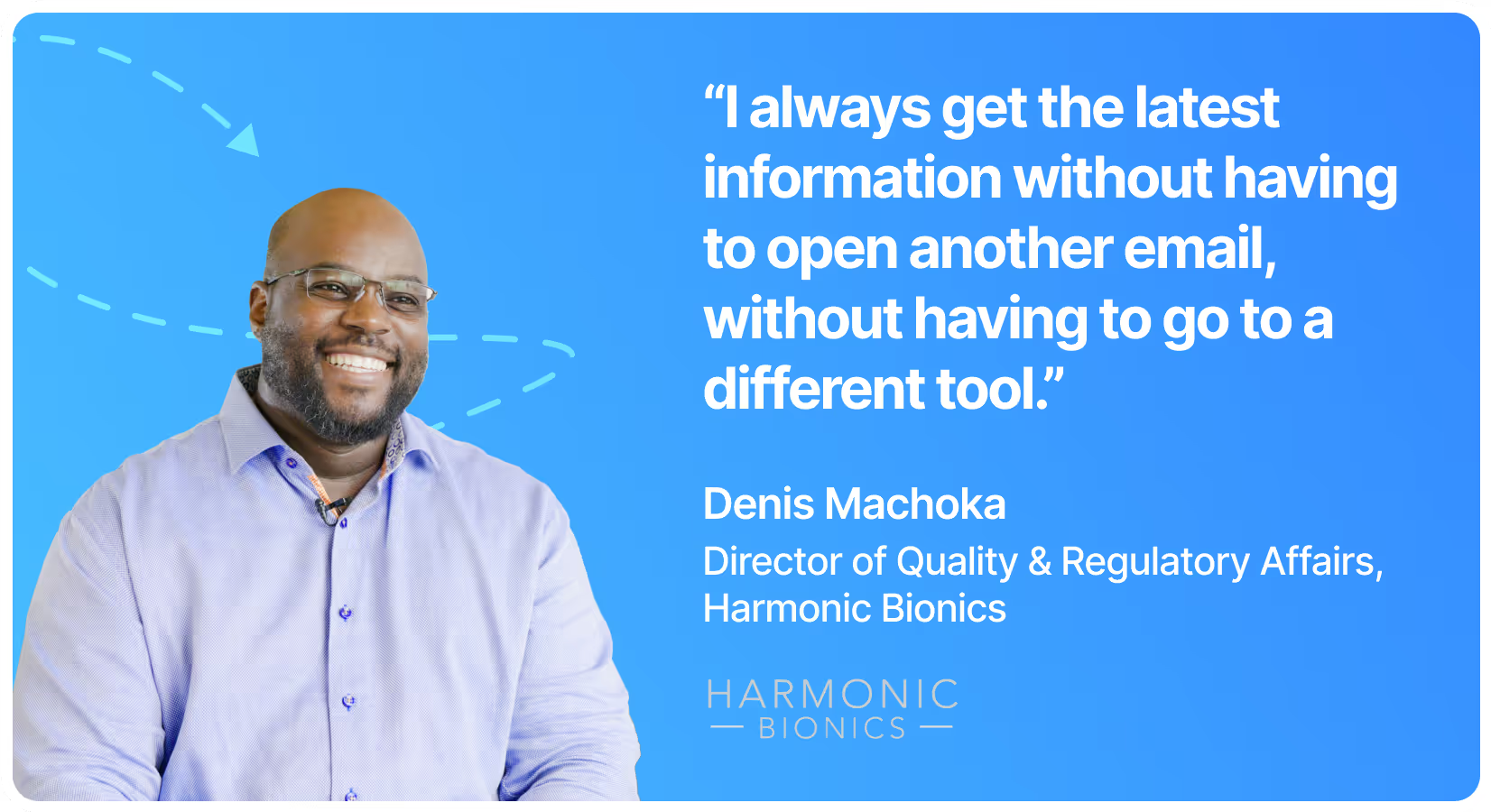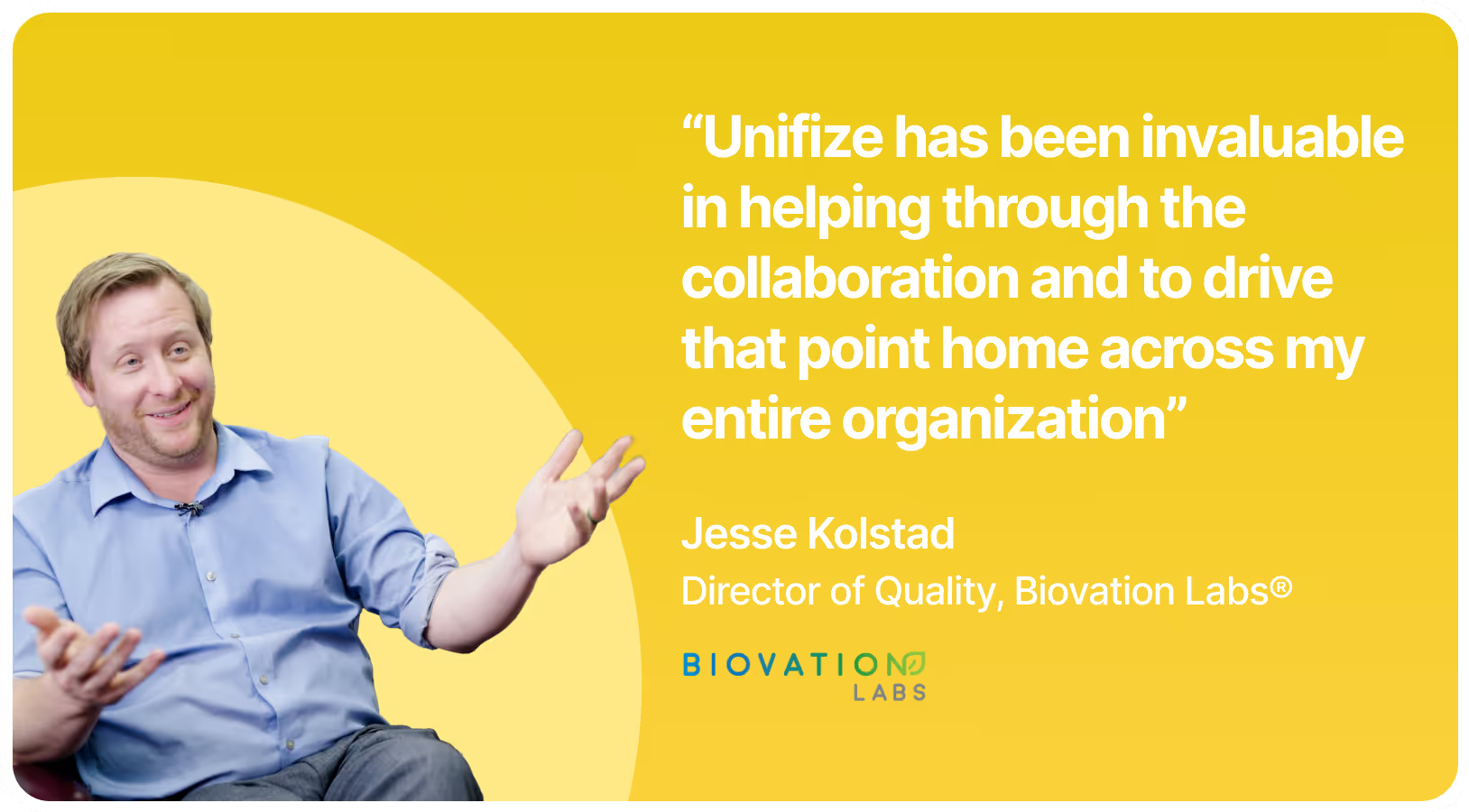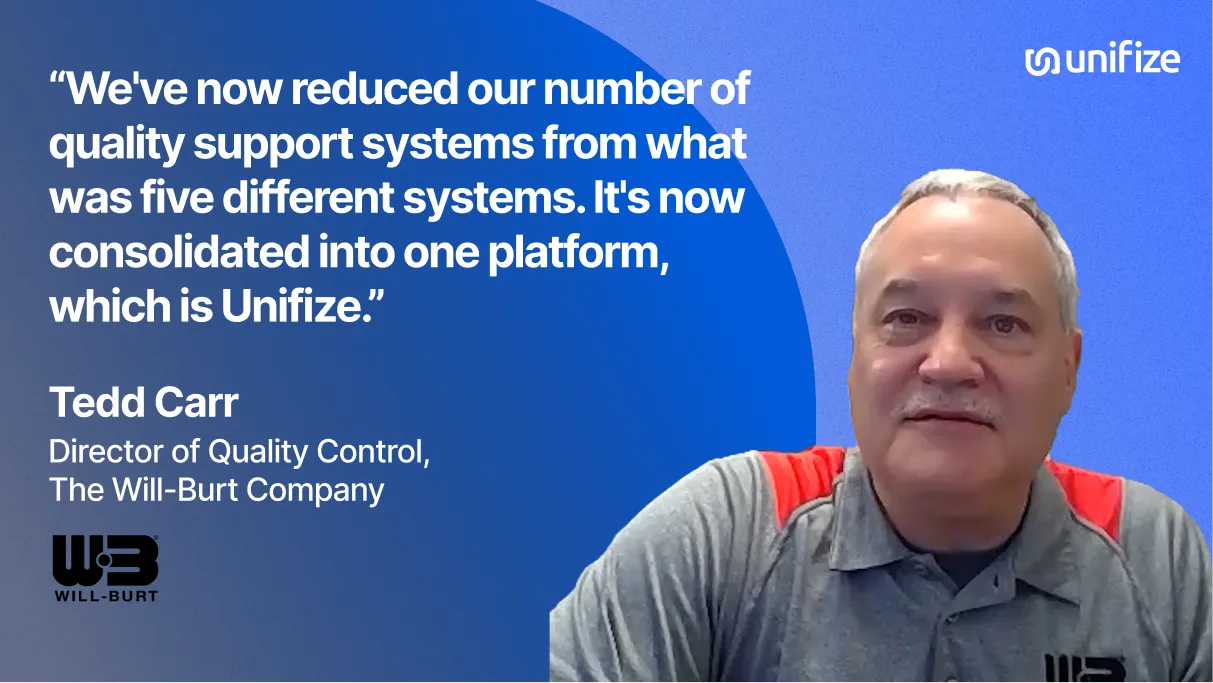Content Library
[00:00 - 00:35]
Going back to when I first started here at Biovation, I remember one of the internal customers asked me to address a backlog of Out of Specifications going back two years at the time. And frankly, I said no because I wasn't here for those. But I can promise that we're going to streamline those and then I again, second day was digging into an Out of Spec which started me down the path of continuing to look at what is our Out of Spec process, how do we document it, how many do we have, Do we are we able to trend that along the lines of per ingredient, per supplier, per lab, etc.?
[00:35 - 00:51]
And again, no. And they were using, I think at the time about 21 different labs. And the problem with the Out of Specs was they would get an Out of Spec and then they would send it to another lab and they would still get an Out of Spec and they would send it to another lab. And this was time.
[00:51 - 01:22]
This was money because each lab would take approximately 5 to 7 business days at best to get back the results. And at no point were they able to actually discover was it Out of Spec and what to do about it. They just were waiting for results. Now, hopefully I'm not showing too much under the skirt, so to speak, but by being able to dig in there, I saw that that was the best and most valuable place to start to get our product released in a streamlined fashion.
[01:22 - 01:32]
when I started here at Biovation, I remember my interview seeing they had just pumped a lot of money and it's a beautiful state of the art facility.
[01:32 - 01:57]
And then I started on my first day and saw from a quality side it was still very paper based. It was still very chaotic. And could you I mean, there was a lot of early and easy wins. I called them and a lot of people would refer to it as low hanging fruit. But the my second day I remember I solved an Out of Spec and they had spent gobs of money at this point on this one material because it kept failing.
[01:57 - 02:16]
I believe it was vitamin B12. And I said, okay, let's look at the history and the people in my team who I started with here I was like, “Can you pull any other Out of Specs for this ingredient?” And I realized very quickly that pulling that historical data was, if possible, incredibly difficult.
[02:16 - 02:33]
So Out of Specifications, I think it's sort of a multi-headed beast in the sense that people set specs because the regulations say, what is it, 21 CFR 111 subsection E 70 through 75, it says, What's specifications must you establish?
[02:33 - 02:57]
And people interpret that kind of to the letter and they set specifications to have specifications not because of the intent behind them, which is what does your material, what does your product, what does it need to do? And so they're your specifications. And I think speaking to frustrations, a lot of times people aren't comfortable, first and foremost, setting the specifications for what they need, not for what's written.
[02:57 - 03:25]
And then that results in a lack of understanding. I think, in interpreting the results. And then they treat it like it's black and white. So speaking to B12, let's say it, it's supposed to be no less than 85% and they get 84% and they go “well it’s Out of Spec”. Well, is it and with my background in analytical chemistry and method development, I'm afforded the advantage of being able to say, well, there's always uncertainty associated with it.
[03:25 - 03:50]
There's lab performance, there's, you know, digging into the methods. But when I started, they were, as I said, using about 21 labs here, which told me that there was a disconnect between specification and result. And it was kind of a thumbs up, thumbs down situation, whereas it's a little more interpretive than that. But speaking to the frustrations, that interpretation comes from an understanding of your specs and why you're testing it and what you're testing for.
[03:50 - 04:13]
So when I talk about managing specs, let's be frank, I'm talking about managing Out of Specs because specifications, you establish them. And as I said, no news is good news for most people. What Unifize gives me the opportunity to do is when we talk about managing specs, as I said, we're talking about managing Out of Specs is in an instant at the same time
[04:13 - 04:25]
When I first started as I said, I started with out aspects because it was an easy place to start and it's typically where I always start and I realized they were sending to too many labs, they were sending too many samples and too many retests.
[04:25 - 04:55]
And there's there's very real numbers associated with that. So within a month, I think I had not only increased or decreased the time it takes to close out on that aspect, which does increase throughput, but eliminate unnecessary retest, consolidate two labs where then I use that to negotiate better pricing, faster turnaround, more commitments. And I took our testing cost by my second month from roughly $150,000 a month down to about 70.
[04:55 - 05:01]
So that's a 50% savings month on month and that has consistently happened for two years now.
[05:01 - 05:10]
Unifize has giving me the ability to make all of my team more effective so I can do a lot more with less heads because we have we are we have eyes and ears everywhere all the time.
[05:10 - 05:35]
So I don't need to throw a quality person at each layer, at each. They're not at blending, at packaging, at weighing it. They're everywhere. And somebody can just say, Hey, I need you. And in the chat environment and they're over there ready to look at Non-Conformance is to deal with the problem. And so the delays the rough spots immediately start smoothing out and I, I encountered that right away.
How Unifize helps quality leaders take better decisions on Out of Specs

Customers
Denis's experience with Unifize: Revolutionizing quality assurance systems
Quality expert Denis details his transformative journey with Unifize. He praises its efficient design, user-centric approach, and the system's ability to streamline data handling and accelerate time to market.

Customers
Harmonic Bionics and Unifize: A seamless transition to regulatory compliance
Clarissa Archer shares her experience integrating Unifize into Harmonic Bionics, underscoring its value in streamlining change control, facilitating communication, and ensuring robust documentation for regulatory compliance in the medical device sector.

Customers
Engineering efficiency with Unifize: Michael Hogan's insights from Harmonic Bionics
Mechanical Engineer Michael Hogan elaborates on how the integration of Unifize at Harmonic Bionics has streamlined his engineering processes, promoting transparency and rapid turnaround in the medical device domain.

Customers
Here’s how Biovation Labs reduced testing costs from $146K to $65K in two months
Learn how and why Biovation Labs, an FDA regulated nutraceutical manufacturer based in Salt Lake City, took the decision to transition from MasterControl to Unifize for their product lifecycle (PLM) and quality management (QMS) processes.

Customers
How a quality veteran from boosted issue closure time by 75% within the first month
Tedd Carr from The Will-Burt Company discusses overcoming their diverse and complex quality challenges across various sectors with Unifize. By consolidating five systems into one, they achieved clear accountability and reduced issue closure from months to days, demonstrating significant efficiency gains and faster decision-making in their quality processes.





